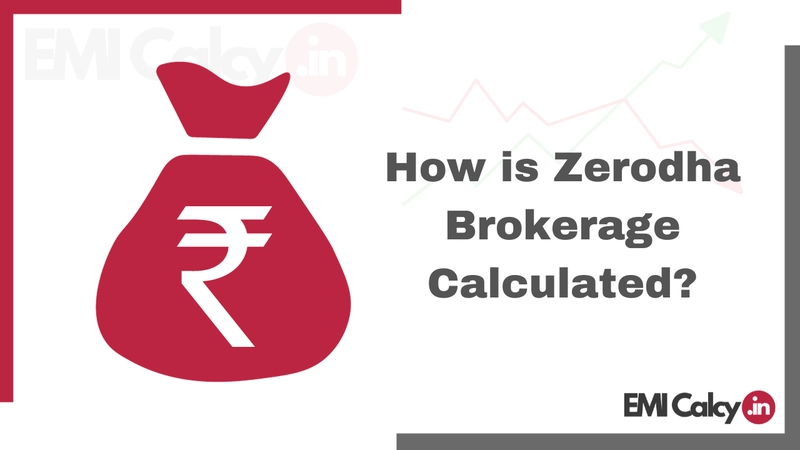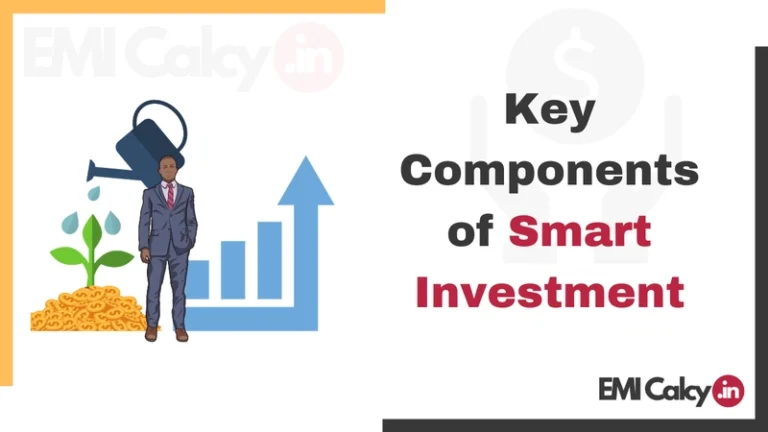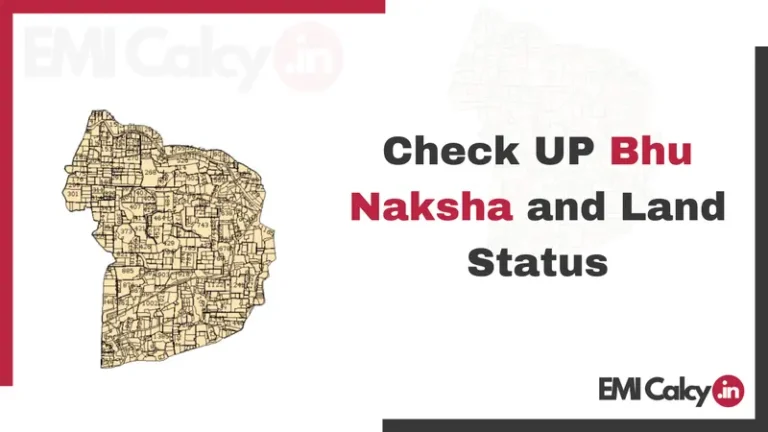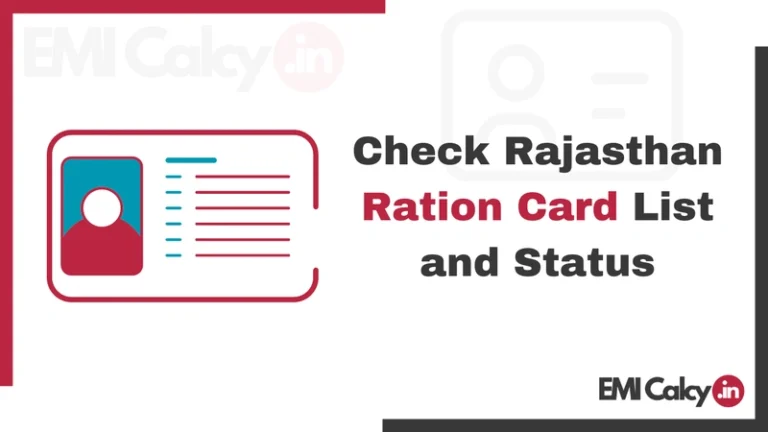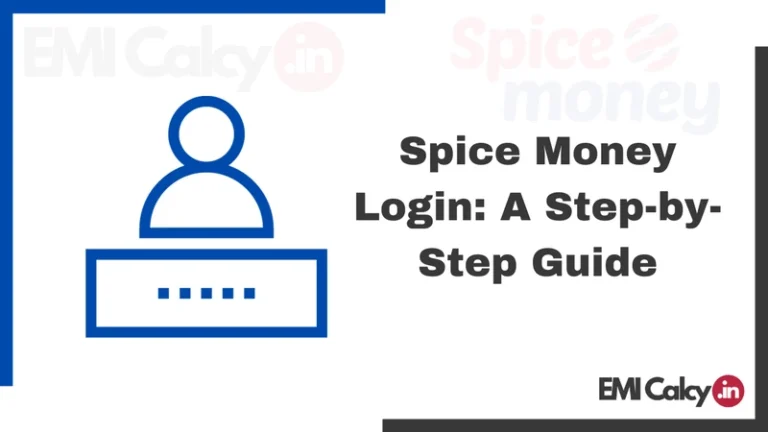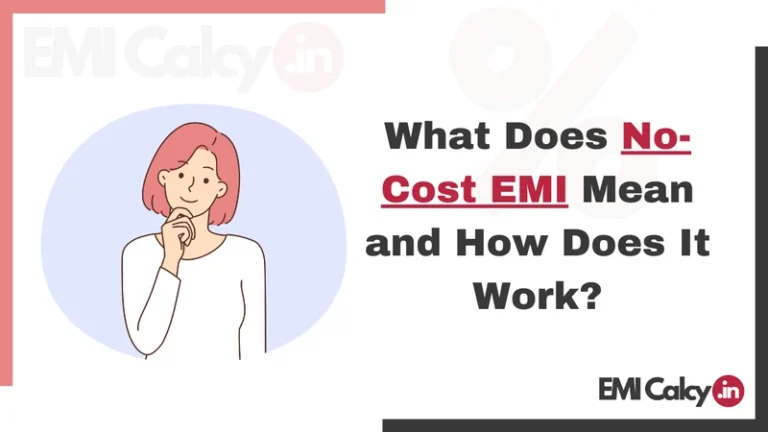In the ever-evolving landscape of stock trading, Zerodha has made a significant mark as a discount brokerage platform, known for its user-friendly interface and cost-effective services.
One of the essential aspects of trading with Zerodha is understanding how their brokerage is calculated.
In this comprehensive article, we will learn deeply about the intricacies of Zerodha brokerage and how it is calculated, demystifying the calculations and shedding light on how traders are charged for their trades.
Introduction to Zerodha
Before we jump into the intricacies of brokerage calculation, let’s understand the basics of Zerodha and what makes it a preferred choice for many traders.
What is Zerodha?
Zerodha is India’s largest discount brokerage firm, known for its transparent and low-cost trading services. Founded in 2010, it has revolutionized the way people trade in Indian stock markets.
Zerodha offers a user-friendly trading platform, innovative tools, and educational resources, making it a go-to platform for both beginners and experienced traders.
Related: Mastering the Best Zerodha Streak Strategy
Key Features of Zerodha
Before we proceed, it’s crucial to highlight the key features that make Zerodha unique:
- Zero Equity Delivery Brokerage: Zerodha charges zero brokerage fees for investments held overnight (equity delivery).
- Flat Fee for Intraday and Derivatives: For intraday trading and trading in derivatives like futures and options, Zerodha charges a flat fee, making trading cost-effective.
- Technology-Driven: Zerodha is at the forefront of technology, offering advanced tools and platforms for traders.
- Educational Initiatives: The platform emphasizes trader education with a range of resources like webinars and a knowledge base.
Understanding Zerodha Brokerage Calculation
Now, let’s understand the nitty-gritty of how Zerodha calculates brokerage charges.
Brokerage for Equity Delivery
Zerodha’s brokerage for equity delivery (i.e., buying and holding stocks) is straightforward. Here’s how it works:
- Zero Brokerage: Zerodha charges zero brokerage for equity delivery. This means that if you buy stocks and hold them overnight (T+1), you won’t incur any brokerage charges.
Brokerage for Intraday and Derivatives
For intraday trading and trading in derivatives like futures and options, Zerodha employs a flat fee structure.
The brokerage charges are determined based on the trade value or the number of lots traded.
Equity Intraday Brokerage
For equity intraday trading, where stocks are bought and sold within the same trading day, Zerodha charges a flat fee. The brokerage structure is as follows:
- Flat Fee: Zerodha charges a flat fee of Rs. 20 per trade, irrespective of the trade value. This means that whether you trade stocks worth Rs. 10,000 or Rs. 10 lakhs in a single trade, the brokerage remains Rs. 20.
Related: Best SIP Calculator Online
Futures and Options Brokerage
When trading in derivatives like futures and options (F&O), Zerodha follows a similar flat fee structure:
- Flat Fee: For F&O trading, Zerodha charges a flat fee of Rs. 20 per trade (buying and selling combined) or Rs. 20 per lot (if trading in lots).
- Example: Suppose you are trading Nifty futures and you buy and sell 2 lots in a single trade. In this case, the brokerage for the trade will be Rs. 40 (Rs. 20 per lot, and there are 2 lots).
Additional Charges
In addition to the flat brokerage charges, there are a few other charges that traders need to be aware of:
- Securities Transaction Tax (STT): STT is a tax levied on the value of the transaction. It’s applicable for both the buying and selling of securities. The rate varies for equity delivery and intraday trading.
- Transaction Charges: These charges are imposed by the exchanges and vary depending on the trade value.
- Goods and Services Tax (GST): GST is applicable on the total brokerage and transaction charges.
- Stamp Duty: Stamp duty is levied on the turnover of each trade. It varies from state to state.
Brokerage Calculation Examples
To get a clearer picture of how Zerodha brokerage is calculated, let’s go through a few practical examples.
Equity Intraday Brokerage Calculation
Suppose you decide to buy 100 shares of Company X at Rs. 150 each and then sell them on the same trading day at Rs. 160 each.
- Brokerage: Since it’s an intraday trade, you will be charged Rs. 20 for this trade, regardless of the trade value.
- STT: The STT is calculated at a specific rate, which can change, but let’s assume it’s 0.025% for buying and selling. So, STT for this trade would be 0.025% of the total turnover (100 shares x Rs. 160) + (100 shares x Rs. 150).
- Transaction Charges: These are minimal and may vary. Let’s assume it’s Rs. 0.00325 per share (buying and selling combined).
- GST: GST is calculated on the brokerage and transaction charges. It’s currently 18%.
- Stamp Duty: Stamp duty varies from state to state.
Futures and Options Brokerage Calculation
Let’s consider a scenario where you trade in Nifty futures and buy 3 lots at Rs. 12,000 each and later sell them at Rs. 12,200 each.
- Brokerage: For each lot, you will be charged Rs. 20 for buying and Rs. 20 for selling. Since you have traded 3 lots, the total brokerage for this trade is Rs. 120 (3 lots x Rs. 40).
- STT: STT is also applied to F&O trading and is calculated based on the value of the transaction. The rate may vary.
- Transaction Charges: Similar to equity intraday, transaction charges apply to F&O trading.
- GST: GST is calculated on the total brokerage and transaction charges.
- Stamp Duty: Stamp duty is applicable and may vary based on your location.
Related: Lump sum Investment Calculator Online
Reducing Zerodha Brokerage Costs
While Zerodha’s flat fee structure is cost-effective, there are ways to further reduce your brokerage costs:
Trading in Higher Volumes
One way to minimize brokerage costs is by trading at higher volumes. Since Zerodha’s brokerage is fixed per trade, trading larger quantities can spread the cost over a more extensive trade value.
Hedging Strategies
For options trading, consider employing hedging strategies that involve both buying and selling options. This can help offset the brokerage costs.
Regular Monitoring
Keeping an eye on your trading costs and regularly reviewing your trading activity can help you identify areas where costs can be minimized.
Conclusion
Understanding how Zerodha calculates brokerage is crucial for traders to manage their trading costs effectively.
Zerodha’s transparent and flat fee structure makes it a popular choice among traders, and being aware of additional charges like STT, transaction charges, GST, and stamp duty ensures you’re not met with any unexpected surprises in your trading journey.
With a user-friendly platform, innovative tools, and a commitment to trader education, Zerodha provides an ideal environment for traders to thrive.
So, whether you’re a seasoned trader or just stepping into the world of stock markets, having a clear understanding of Zerodha’s brokerage structure will undoubtedly be a valuable asset on your trading path.
FAQs about Zerodha Brokerage Calculation
What is Zerodha brokerage, and how is it calculated?
Zerodha brokerage is the fee you pay for trading on the platform. It’s calculated based on the type of trade you make. For equity delivery (holding stocks overnight), there’s no brokerage. For intraday and derivatives trading, Zerodha charges a flat fee of Rs. 20 per trade.
Does Zerodha charge extra fees apart from brokerage?
Yes, apart from brokerage, there are additional charges to consider. These include Securities Transaction Tax (STT), transaction charges imposed by the exchanges, Goods and Services Tax (GST), and stamp duty, which varies by state.
Can I save on Zerodha brokerage costs?
Yes, you can reduce your brokerage costs by trading in higher volumes, using hedging strategies in options trading, and monitoring your trading activity regularly to identify areas where costs can be minimized.
Are there any hidden fees associated with Zerodha brokerage?
No, Zerodha is known for its transparency. There are no hidden fees. All charges, including brokerage and other taxes, are clearly mentioned, ensuring you know what to expect in terms of costs.

